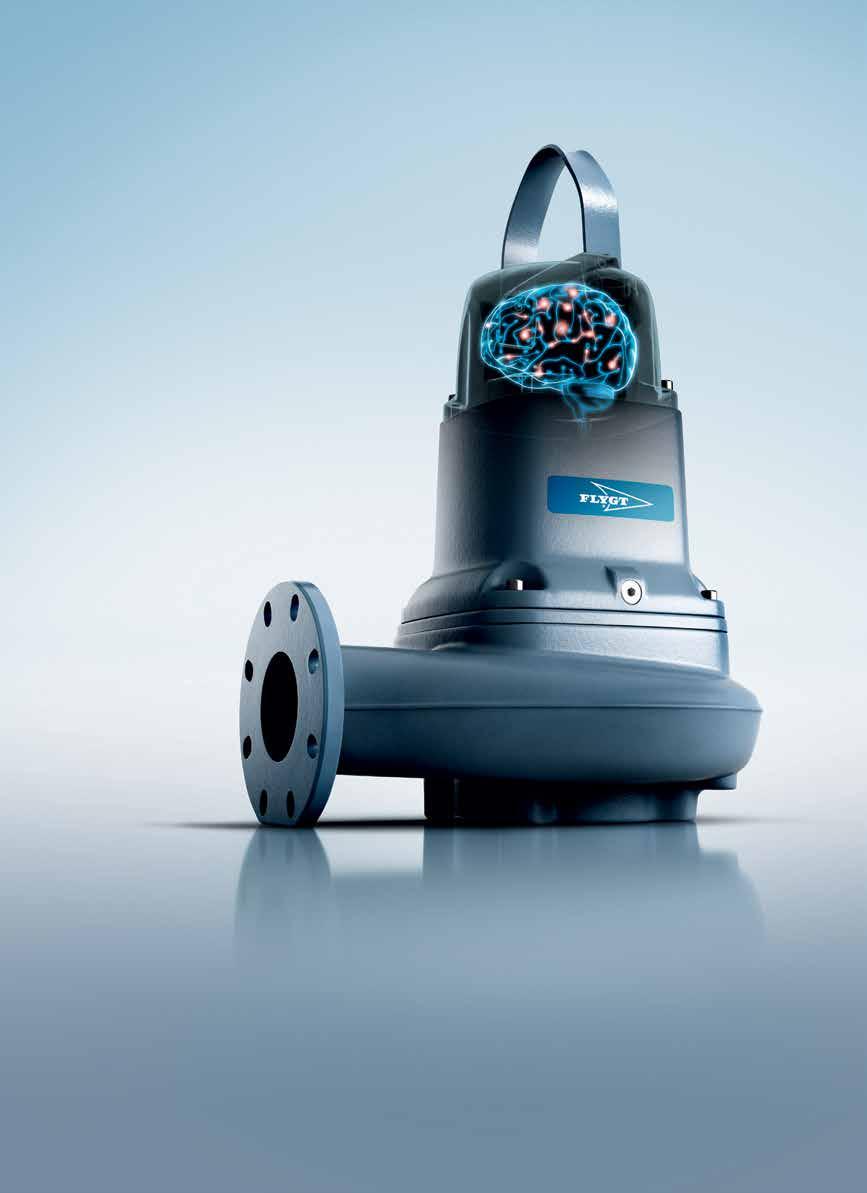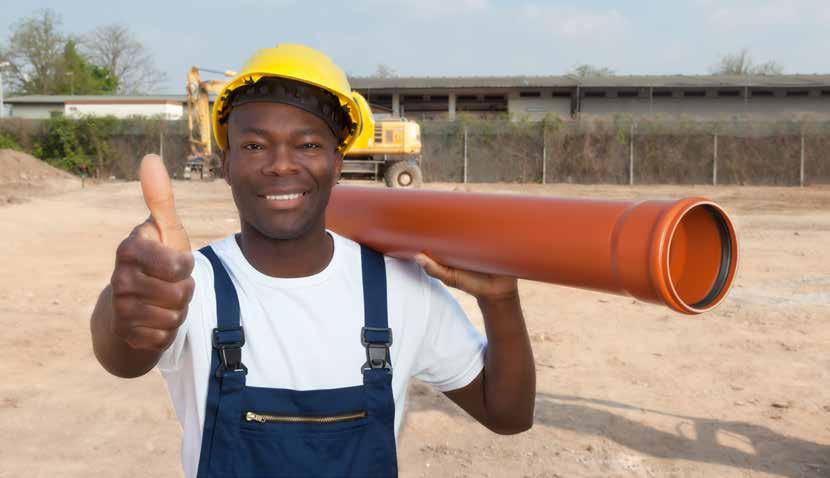
6 minute read
YWP
YWP-ZA Women’s Month Webinar Series:
Advertisement
In honour of Women’s Month and the 20 000 women that marched to the Union Buildings on 9 August 1956 to protest the Pass Laws, the WISA Young Water Professionals (YWP-ZA) hosted a webinar series honouring the incredible women working in South Africa’s water sector in 2020.
he first of three webinars, held on 10 August 2020, was entitled ‘She leads: with her power, voice and pride’ and included a dialogue with seven phenomenal women from diverse backgrounds, with amazing stories, sharing their experiences navigating their chosen fields and what the current Covid-19 pandemic has meant for their personal and professional lives.
Monica Malunga, acting executive: Operations, Umgeni Water, started the webinar with an all too familiar story of how she, like many others, joined the water sector by chance in her youth: “It found me, I didn’t find it,” she confessed with a laugh.
However, after many years of hard work, she had managed to work her way into the upper echelons of leadership in the sector that ‘found her’ and in answering the question of how she came to be an executive at Umgeni Water, Malunga says that when she was given an opportunity to lead, she took that opportunity while at the same time making sure that – through her hard work and excellent leadership – she would not just be a token woman in leadership, but would use her voice to make sure that women in the sector would have similar opportunities.
Each time a woman stands up for herself, without knowing it possibly, without claiming it, she stands up for all women.”
Maya Angelou
Malunga advises young women that while South African society is still battling to accept women in boardrooms and there still remains a perception that women who raise their voice are ‘just being emotional’, it does not mean you have to start acting like a man to be accepted in positions of power. “Stay true to yourself and know that, as a woman, you have all the capabilities that men have and you must demand that space in the boardroom and not be afraid to speak and stand up for yourself,” she said.
Mentorship The need for mentorship among women was a consistent talking point among the panellists, with Dr Tebogo Mashifana, senior lecturer, University of Johannesburg, challenging those women that are the first to enter the male-dominated boardrooms to ask themselves what they are doing to empower other women to achieve the same and taking the time to mentor these young women who are following in their footsteps.
Matome Selelo, microbiologist, ERWAT, further advised that while she agrees mentorship is critical, young water professionals (YWPs) must equally “come with a teachable attitude” and a willingness to learn, so as to harness this mentorship better.
“Whenever there was a new student, it was always a man,” recalled Lungi Zuma, senior chemical engineer,
eThekwini Municipality, of her days studying chemical engineering at the University of KwaZulu-Natal (UKZN) back in 2012, as she spoke to the issue of ensuring that more women enter the water sector in technical positions.
Although she conceded that work in sanitation is definitely a dirty job, she is encouraged to see more women joining the field in recent years. “We need to keep women in technical positions and ensure that when we see a photo of the executives of a water service provider that the women aren’t always only the heads of the HR departments,” she said, lamenting how many of the female engineers she started working with at Sasol are no longer in the same technical positions.
Disabilities and diversity While the conversation was dominated by critical talking points such as women in leadership, the need for mentorship, and the need for women in technical positions in the water sector, we were also reminded, by Thuli Mkhize, works administrator, Umgeni Water, about the struggle that women with disabilities face in the workplace, especially in terms of accommodating physical disabilities at water and wastewater treatment plants across the country.
Although she said that she is seeing a change, as many new plants being constructed do attempt to accommodate physical disabilities, and she believes that this is an indication of barriers that are slowly, but surely, fading away due to a multitude of diverse voices that are finally being listened to. She reassured us that while change might not happen overnight, it will eventually happen somewhere along the line.
Furthermore, a proudly queer YWP, Thandolwethu Jele (MSc candidate ecological science, UKZN), highlighted the need to create workspaces that promote diversity and safe spaces, both for women and for non-binary persons, by holding individuals accountable, designating genderneutral bathrooms, and encouraging the use of different pronouns for different individuals. Covid-19 But let us not forget the backdrop against which this webinar was held: the Covid-19 pandemic. According to Dr Rebecca Sindall, operations manager: Sanitation Prototype Testing Platform, UKZN, the Covid-19 pandemic, especially in South Africa, has highlighted the inequality in water provision and sanitation.
While some people can stay safely at home and wash their hands with warm running water from a tap, many people, mainly women, still have to walk kilometres to the nearest water collection point for basic functions, such as cooking, washing and hygiene. And while she commended the government response to provide water during the crisis to the areas that lack easy access to water, she said that these measures are only short-term solutions. It is imperative that we find economically sustainable and alternative long-term solutions to achieve universal access to water and sanitation in South Africa, she noted.
In the words of John Lewis, “Never, ever, be afraid to make some noise and get in good trouble,” she quoted, adding that it is up to us to decide what the normal is going to be that we return to after the pandemic.
In conclusion, it was Dr Mashifana that passionately summed up the spirit of the webinar when she stated: “As a woman, I cannot postpone doing some things because I am a woman. I cannot postpone being a mother because I want to be a student. I cannot postpone being a business woman because I want to be a wife. It is a matter of women taking up space and owning that space.”

The YWP-ZA would like to thank the members of the YWP-GP and YWP-KZN chapters for organising this necessary and incredibly successful webinar. Each of the panellists was asked what advice they would give to their younger self. Here are some of the responses:
Lungi Zuma
Matome Selolo
Dr Tebogo Mashifana

Thandolwethu Jele
















